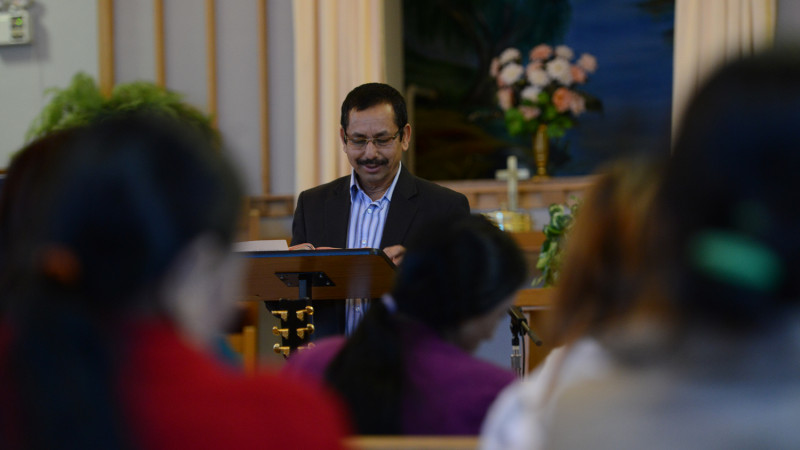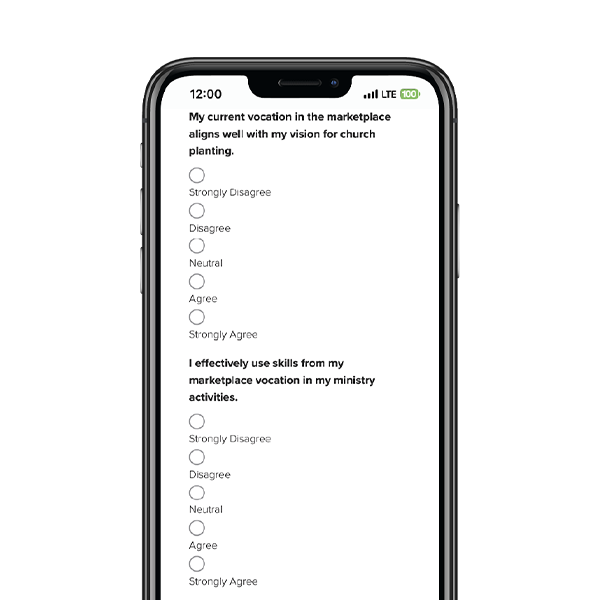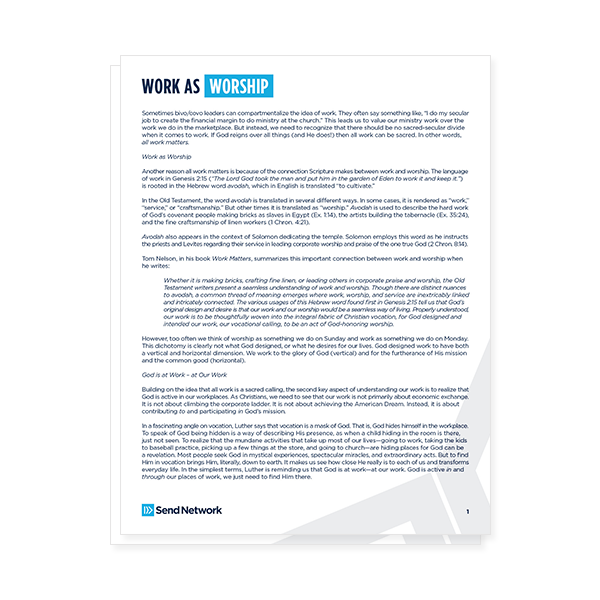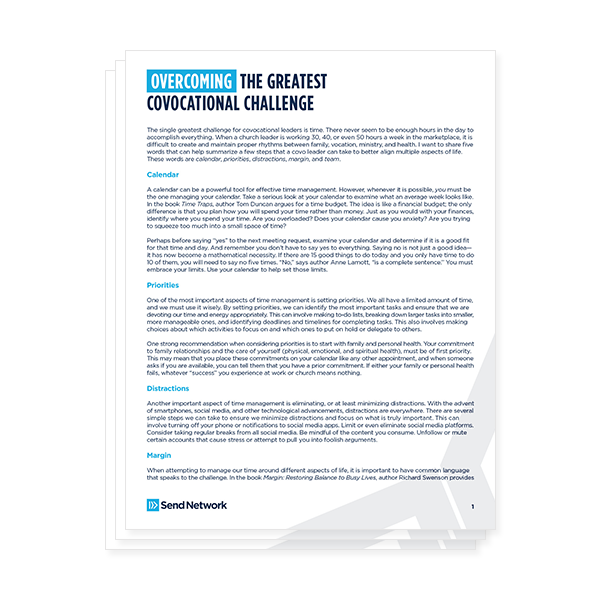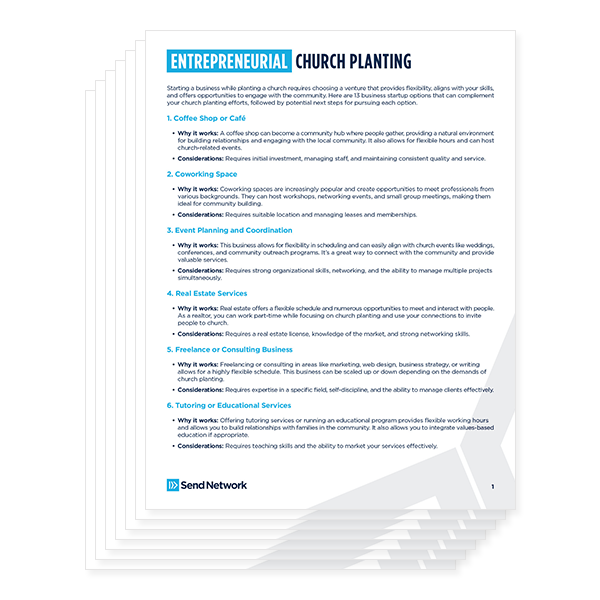Bivocational—it’s an interesting word. In fact, our spellcheck tells us it’s not a word. Even our computers know this is craziness. Bi = two, vocation = job. Two jobs?! One job is tough enough, but two? Then add to the equation the fact that one of the jobs is in ministry, and life can become quite complicated. If he’s not careful, the bivocational planter may fall prey to a particularly dangerous kind of discouragement. He may begin to think that he is undergoing a discouragement such as has never been known, especially by…wait for it…people in full-time ministry. So what do bivocational church planters need to navigate their unique calling and the unique challenges it brings?
I think one of the most important things guys can do is remember how they got there. Some guys get into bivocational ministry and begin to get this feeling that they’ve been tricked. They wonder how on earth someone talked them into doing for free what others get paid for. It is so important for anyone engaged in ministry to remember what led them to where they are. Clarity on calling is one of the best ways to be proactive in dealing with the pressures of ministry. But for the bivocational planter it may be even more important. Because his discouragement can lead to disdain for co-laborers—co-laborers who receive compensation for their work in ministry. Phrases like “I’m not getting paid for this,” and “he gets paid to make disciples” start to creep into the conversation when challenges seem insurmountable. It can be easy to begin to feel like a martyr. Remembering that God has called you to this is a key brick in the foundation for sustainable bivocational church planting. Here is a list of questions and answers that may serve as a great reminder about what he is doing and why.
- How did you get here? This is an important question, with only one good answer: God led me here. If this is not your answer, get out. Remember that you willingly followed God’s call into bivocational work.
- Why are you doing this? Because I trust God’s calling; I trust that He knows best how to spend my life for His glory. Oswald Chambers points out, “Paul delighted to spend himself out for God’s interests in other people, and he did not care what it cost. We come in with our economical notions—‘Suppose God wants me to go there—What about the salary? What about the climate? How shall I be looked after? A man must consider these things.’” (February 25 entry) It’s not wrong to consider practical things, but our ultimate reason for serving God has nothing to do with any of those things—we selflessly serve because we not only recognize His calling, we trust His calling. We have decided that His plan for my life is better than mine.
- Who are you accountable to? You may report to a local pastor, denominational leader, or organization, and these structures are helpful and important. But you are ultimately accountable to God to fulfill His calling in your life. So do your work with Him in mind. Consider re-memorizing Hebrews 12:1-4. (Yes, I assume that if you are a planter you have memorized those verses at some point!) If you are planting within a network of relationships and accountability structures in place then you will frequently give an account to someone, someone who will likely be full-time. So be thankful for them, give good reports, show gratitude for their service and remember that you ultimately will answer to God for the work you are doing in His church.
- What is your reward? Your reward is not to “succeed” in church planting, though we would love for you to. Your reward is not to one day become full-time, though this may happen and would be worth celebrating under the right circumstances. Your reward is not tangible, not earthly. Your reward is the joy that comes from knowing you are walking in the steps God has set before you, fulfilling the mission He has called you to.
- Do you feel called to vocational ministry? Here is an interesting question for a bivocational planter. If you feel called to full-time work can you articulate how God has led you to this conclusion? And if so, then what steps are you taking to get there? Put an action plan into place instead of complaining about the trials of being bivocational.
These questions can help make you aware of some of the challenges a bivocational planter will face. Helping a planter walk through these can be super helpful in preparing them to ward off the temptation to blame their ministry challenges on being bivocational. Affirm the courage of these men, and lead them to clarity on their calling.
Published November 10, 2016
